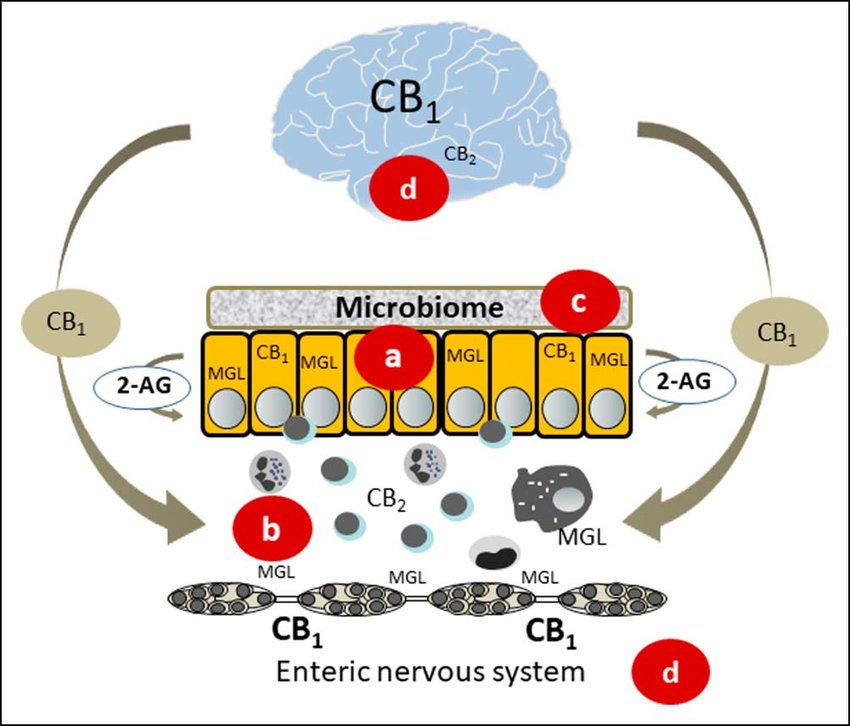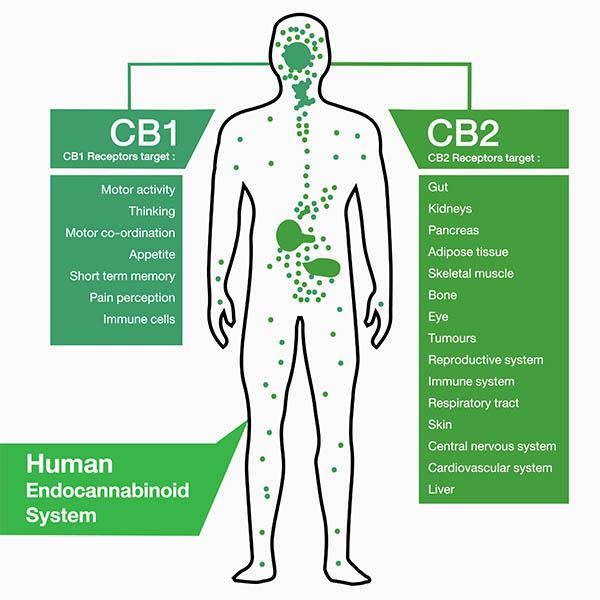The use of cannabinoids, such as marijuana and CBD products, has gained significant interest in recent years for their potential therapeutic benefits. Let’s get into the relationship between cannabinoids and the gut microbiome, exploring the current research and its implications.
One area of particular interest is their impact on gastrointestinal disorders and the gut microbiome. While some claim that cannabinoids can alleviate symptoms of conditions like irritable bowel syndrome (IBS) and inflammatory bowel disease (IBD), it’s important to examine the scientific evidence behind these claims.
Understanding the Microbiome and its Importance
Before we delve into the relationship between cannabinoids and the gut microbiome, let’s first understand what the microbiome is and why it’s important. The human body is home to trillions of microorganisms, including bacteria, viruses, and fungi, which collectively make up the microbiome. These microorganisms reside on various surfaces of the body, including the skin, mouth, and gastrointestinal tract.
The gut microbiome, specifically, refers to the microorganisms that inhabit the gastrointestinal tract. This complex ecosystem plays a crucial role in digestion, nutrient absorption, immune function, and overall health. Researchers have linked imbalances or disruptions in the gut microbiome to various health conditions, including gastrointestinal disorders, metabolic disorders, and even mental health issues.
The Endocannabinoid System and Gut Health
To understand the relationship between cannabinoids and the gut microbiome, we must first explore the endocannabinoid system (ECS). The ECS is a complex signaling system found in the human body and plays a vital role in maintaining homeostasis. It consists of endogenous cannabinoids (endocannabinoids), receptors, and enzymes.
The ECS regulates various physiological processes, including gut motility, inflammation, and permeability. Cannabinoid receptors, known as CB1 and CB2 receptors, are found throughout the body, including in the gastrointestinal tract. They interact with cannabinoids, both endogenous and exogenous, to modulate various functions.
Impact of Cannabinoids on the Gut Microbiome

Research suggests that cannabinoids, particularly THC and CBD, may influence the gut microbiome and gut health. Studies conducted on animals have shown that chronic THC administration can lead to changes in immune cells within the gut and alter the composition of the gut microbiome in rodents. However, researchers need to conduct more studies to determine if these effects translate to humans.
inflammatory bowel disease (IBD), involving chronic inflammation of the gastrointestinal tract, associates with changes in the gut microbiome. Inflammatory bowel disease (IBD), involving chronic inflammation of the gastrointestinal tract, associates with changes in the gut microbiome. Preliminary studies have explored the potential of cannabinoids, specifically THC and CBD, in alleviating symptoms of IBD by modulating gut inflammation and potentially influencing the gut microbiome directly. However, the clinical efficacy of cannabinoids for gut diseases like IBD is still being investigated.
Prebiotics, Probiotics, and the Gut Microbiome
Apart from cannabinoids, other factors can influence the composition and health of the gut microbiome. Prebiotics and probiotics, for example, have gained attention for their potential benefits to gut health. Prebiotics are substances that nourish the beneficial bacteria in the gut, while probiotics are live microorganisms that confer health benefits when consumed.
Consuming a diet rich in prebiotics, such as fiber, promotes the growth of beneficial bacteria in the gut. This, in turn, can enhance the diversity and stability of the gut microbiome. Probiotics, on the other hand, can be ingested in the form of supplements or fermented foods to introduce beneficial bacteria into the gut. However, it’s important to note that the efficacy of probiotics depends on various factors, including the specific strains and the individual’s gut environment.
The Impact of Lifestyle and Pharmaceuticals on the Gut Microbiome
Our lifestyle choices and the medications we take can also have a significant impact on the gut microbiome. Factors such as diet, stress levels, exercise routines, and sleep patterns can influence the composition and diversity of the gut microbiome. Additionally, pharmaceutical drugs, including antibiotics and psychiatric medications, can disrupt the balance of the gut microbiome.
Antibiotics, while effective in treating bacterial infections, can also unintentionally kill beneficial gut bacteria. This can lead to an imbalanced microbiome and potentially negative health consequences. However, after a course of antibiotics, there is an opportunity to partially restore the gut microbiome through a healthy diet rich in prebiotic fibers and potentially the use of probiotics.
Psychiatric medications, such as selective serotonin reuptake inhibitors (SSRIs), can also impact the gut microbiome. These medications can alter serotonin levels in the brain and gut, influencing the molecular environment of the gut and indirectly affecting microbial growth. However, further research is needed to fully understand the extent of this impact on the gut microbiome.
The Role of Endocannabinoids in the Gut Microbiome

Endocannabinoids, The body naturally produces these compounds, and they also play a role in the gut microbiome. The fat composition of one’s diet can influence endocannabinoid levels in the body. Which can, in turn, affect gut permeability and other gut-related functions. Additionally, certain microbes, such as Candida albicans, can manipulate the endocannabinoid system in animals, leading to changes in neuroendocrine levels and behavior.
Given the influence of endocannabinoids on the gut microbiome, it is plausible that plant cannabinoids. Such as THC and CBD, may also have direct and indirect effects on the gut microbiome. However, We need more research to fully understand the mechanisms and clinical implications of these interactions.
Future Directions and Implications
While research on the relationship between cannabinoids and the gut microbiome is still in its early stages. The potential therapeutic benefits are promising. Understanding how cannabinoids interact with the gut microbiome can provide insights into developing targeted therapies for gastrointestinal disorders and improving gut health.
However, it’s important to approach cannabinoid use for gut health with caution. The effects of cannabinoids can vary depending on the route of administration, dosage, and individual factors. Additionally, the use of cannabinoids containing THC should be approached with care due to their psychoactive effects.
If considering the use of cannabinoids for gastrointestinal symptoms, it is crucial to consult with a healthcare professional. An open dialogue with a provider can help navigate the complexities of cannabinoid therapy, mitigate potential risks

